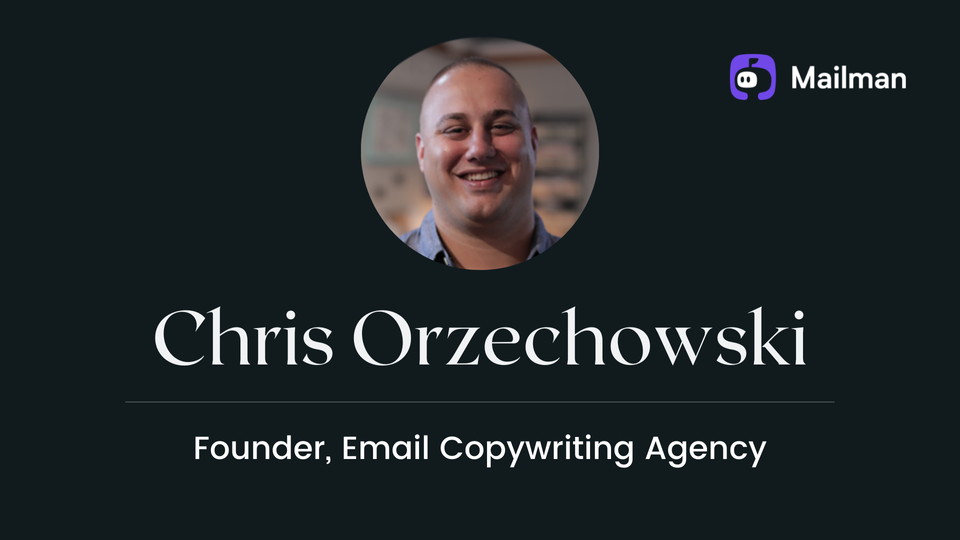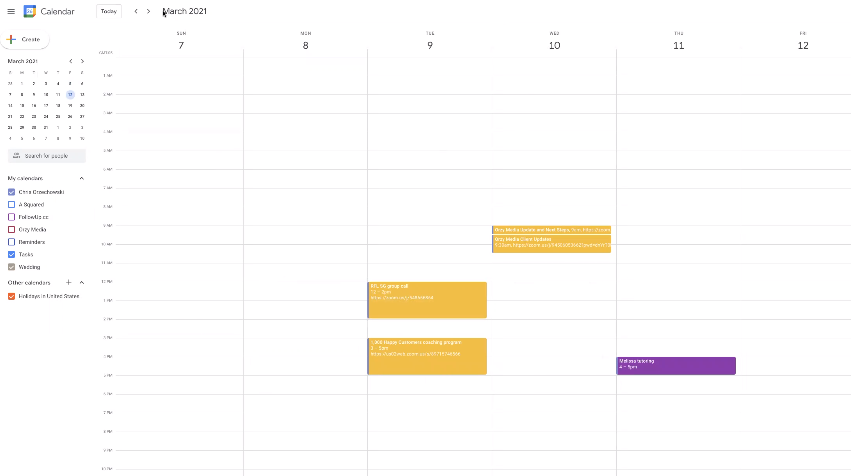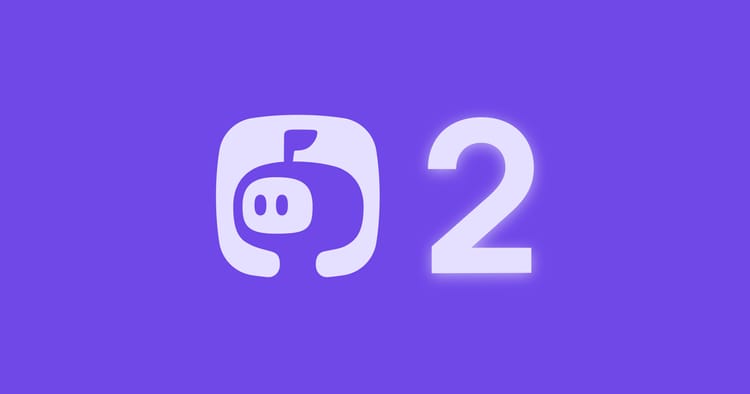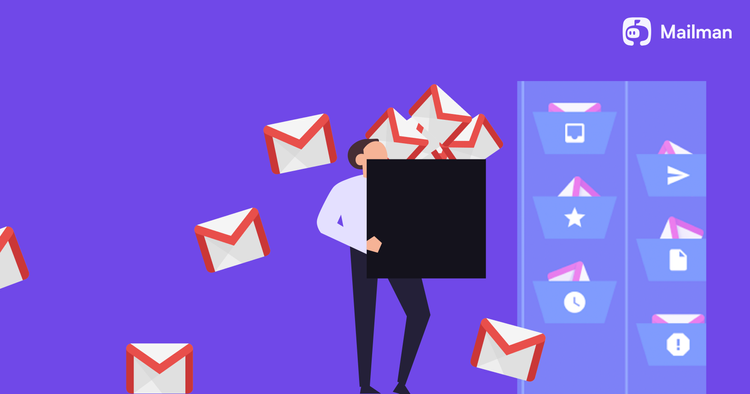The Magic Box technique for meetings

Meetings are time-suckers. If you don't set any boundaries, they can easily consume your entire workday. Not just that, meetings are mentally taxing and if your have them scattered throughout the day, you've set yourself up for misery.
There has to be a way around it. We can't let meetings run over our calendars all day every day.
Turns out, there is a solution. An easy one.
(Drum rolls) "The Magic Box Technique"
Chris Orzechowski uses the Magic Box technique to control his availability for meetings. Let's hear it from him directly.
"As I scaled my business, my schedule was exploding. I had 16 calls a week and they were scattered all around. Basically, I was being or thinking about my meetings all the time. I couldn't get any work done that way.
So what I did is, I drew a box on my calendar and decided to only take all my meetings inside that box. The box for me is Monday to Wednesday, from noon to 4 PM. That way, I have a 3-hour deep work session at the start of the day, for the first 3 days of the week. After that, I get a full day of getting productive work done for the remainder of the week. This has worked incredibly well for me in allowing me some mental peace to do deep work while still allowing me to take the calls when I need to. Not having your meetings scattered all over the place helps so much for your sanity and overall productivity."
As a result, this is how "peaceful" his calendar looks now:

Looking at that makes me a little envious, why didn't I know about this technique before? Ah, never mind now I will.
In this episode, Chris shares how he got into copywriting, making millions for a Kickstarter campaign, the importance of building a pre-launch email list, how he prioritizes shipping over everything else, and much more.
Let's dive in!

Chris introduces himself
Hi, I'm Chris Orzechowski, I have my email marketing agency where we work with e-commerce brands and help them with email automation. On top of that, I also run a newsletter on how to do email marketing and I sell some digital courses around that topic as well. That's just my goal to help as many people as I can in experiencing the wonders of email marketing and automations.
On making $5 million for a Kickstarter campaign
At the beginning of my career, I raised $5 million for a Kickstarter campaign. I basically designed all the email sequences for them. They then ran a follow-up campaign which raised another $4 million with almost the same email sequences. That was one of the early big wins for my email marketing career.
A lot of stars aligned for that win. The landscape was different with crowdfunding and Facebook ads weren't nearly as expensive as they're today. But we did spend a lot of time with the team crafting the right email campaigns, opening up the campaign, getting people to come back during the campaign, and encouraging them to increase the budget for those who back during the campaign. It's was a big campaign, must have been 50-60 emails total. It just took off, it got a lot of viral success.
Importance of having a pre-launch email list
When we launch a campaign for a new product/company, the company usually has some sort of email list of people who are interested in their product. Besides that, we also build a pre-launch list. That's something we do for a lot of our clients. We run Facebook ads, Google ads, YouTube ads, related to partnerships. All those will take people to a page that describes the product and maybe a small product video to help them understand the product. From there, people can sign-up to get early access to the Kickstarter campaign. That drives a lot of traffic for when a campaign actually launches.
We did a campaign about a year ago, and we got around 10 to 12k people, which led to around $170,000 for a consumable product called "Carnivores Snacks". So you get this big rush of people as soon as you launch as you already have a list of people who are familiar with the product and pre-sold on the offer.
A place where a lot of launches go wrong is when the teams don't do a pre-launch campaign to drive interest and build hype for the launch. Having that email list ready is so important for the successful launch of any product.
His beginnings
I was a special education teacher. I worked there for 40 hours a week and I worked on my copywriting business on the side for another 30-40 hours a week. So it was pretty hectic. I was taking clients on calls at 5 AM before I had to go to work.
Every lunch break I was typing, I would be working on my laptop. I even used my sick leaves to work a full day on my business on some days. Thankfully I didn't actually get sick often, so that allowed me to do that. I did that for 3 years, after which I got to a point where I was making the same amount with my copywriting business as I was from my day job.
At this point, I asked myself, "what can I achieve if I could work the entire day on this business, instead of working at 8 O'clock during the night?". That's when I pulled the trigger and moved full-time on my business.
What got him into copywriting?
So being a teacher at school isn't very rewarding financially. The only way to make more money in that profession is to keep working for years to see your salary increase. I wasn't really happy with that.
Meanwhile, I saw a friend of mine selling ebooks on the internet and making 1000s of dollars. That got me curious. I got down that rabbit hole and tried figuring out how all these things work.
Copywriting is something that got my interest. I said great, "I know all the words, all I need to do is arrange them in the right order". That's copywriting at a very fundamental level. It is all about arranging your words in the right order.
This was a very rewarding profession. Your return on a single email can easily run into 1000s of dollars if you do it right.
A typical day
We have our son, who is about to turn 11 months now. He's our alarm clock. So we wake up anywhere between 6 and 7, make our breakfast, and get set up for the day. I usually start working at around 8:30-9. Then I'm mostly done with my work by 4, sometimes 3.
My workday consists of a good amount of meetings. When you run an agency, you've to be on a lot of calls. Calls with clients, calls with strategic teams, calls with our Facebook ads guy.
Before the calls start, I try to get some deep work in. Create content, create courses, I do that stuff first before I get to calls and putting off fires.
The Magic box technique
I use a technique that I like to call "The Magic box". So as I scaled my business, my schedule was exploding. I had 16 calls a week and they were scattered all around. Basically, I was being or thinking about my meetings all the time. I couldn't get any work done that way.
So what I did is, I drew a box on my calendar and decided to only take all my meetings inside that box. The box for me is Monday to Wednesday, from noon to 4 PM. That way, I have a 3-hour deep work session for the first 3 days of the week. After that, I get a full day of getting productive work done for the remainder of the week. This has worked incredibly well for me in allowing me some mental peace to do deep work while still managing to take the calls when I need to. Not having your meetings scattered all over the place helps so much for your sanity and overall productivity.
Would recommend the magic box technique to anyone who has a lot of meetings.
It's all about how much you can ship
At our company, we are big on asynchronous work. I try to avoid meetings as much as possible. If it can be an email, we take the email route. If it can be loom video, that's convenient too. If it has to be a call where I'm not required, I'll get a team member to be on that call.
At the end of the day, it's all about how much you can ship, not how many meetings you attend.
Time management mistakes
I feel living in my inbox is one of them. Chris Dixon said, "Your email inbox is other people giving you a to-do list" and I completely agree.
I follow the principle "Pay yourself first". Both in terms of money and time. I make it my priority to create assets for my business first, before I get to other people's requests, putting off fires, my inbox, and everything else.
You should create something every day, ship something every day, before you get caught up with the never-ending demands of the world.
One extra hour
If I get an extra hour in my day, I'd spend it outside. Just taking a walk. That's probably a boring answer. I could use it for my business, I'd love to have an extra hour for my business but I feel that is a trap. I've found that your best ideas emerge when you're not working.
How to reach Chris?
Visit my website, theemailcopywriter.com. There you can read some of my past blogs and learn how to write great emails without paying me anything.





